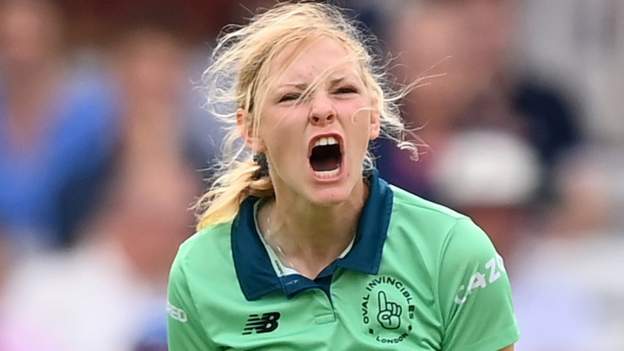[ad_1]
The N.F.L. appointed Peter C. Harvey, a former New Jersey attorney general, to hear its appeal of the six-game suspension of Cleveland Browns quarterback Deshaun Watson for multiple violations of the N.F.L.’s personal conduct policy, according to a league spokesman.
On Wednesday, the N.F.L. appealed Watson’s suspension, which was issued by a third-party disciplinary officer after a three-day hearing in June that probed accusations that he had engaged in sexually coercive and lewd behavior during massages. Sue L. Robinson, the retired federal judge jointly appointed by the league and the N.F.L. Players Association, found that Watson had engaged in “predatory” and “egregious” conduct but suggested that she was limited in her authority to mete out stricter discipline by the N.F.L.’s policies and past rulings.
The union has until Friday to file a response to the league’s appeal, but there is no deadline for Harvey to issue a ruling. The league has said the appeal will be heard on an “expedited” basis.
Watson has denied the allegations against him. Two grand juries in Texas declined to indict him on criminal charges, and he has settled 23 of the 24 lawsuits filed against him by women who said he assaulted or harassed them during massage appointments.
His is the first player-conduct hearing to have gone through a third-party arbitrator, a new process prescribed in 2020 by the collective bargaining agreement between the league and the players’ union. Per its terms, the arbitrator issued an initial ruling, which either side could appeal to Commissioner Roger Goodell or a person of his choosing. The league still holds immense sway over the final outcome because it has what amounts to veto power.
Before Robinson suspended Watson for six games, the N.F.L. asked for at least a full-year suspension. The league is seeking the same penalty in its appeal, and it has also recommended a fine and treatment for Watson, according to a person with knowledge of the brief that the N.F.L. submitted Wednesday but who is not authorized to speak publicly about it. The N.F.L. also cited concerns about Watson’s lack of remorse, as did Robinson in her report on her decision.
Robinson’s discipline did not include a fine or counseling for Watson but did mandate as a condition of his reinstatement that he use only team-approved massage therapists, in team-directed sessions, for the duration of his career.
Harvey, a partner at Patterson Belknap in New York and a former federal prosecutor, has worked on addressing violence against women, including through a sexual-assault response team initiative he led as attorney general. He also is a board member of Futures Without Violence, a nonprofit organization that seeks policy solutions to end violence against women and children.
Harvey helped the N.F.L. rewrite its personal conduct policy in 2014 and sits on the league’s diversity advisory committee created in March. He was a member of the four-person panel that advised Goodell in 2017 during the N.F.L.’s investigation and subsequent suspension of Dallas Cowboys running back Ezekiel Elliott, who was accused of domestic violence but not criminally charged.
Goodell suspended Elliott for six games after consulting with the advisory panel.
Tony Buzbee, the lawyer for Watson’s accusers, held a news conference Thursday afternoon in which he called the N.F.L.’s record on violence against women “sketchy and sad,” and he urged Goodell to issue a stronger penalty. Ashley Solis, the licensed massage therapist who filed the first lawsuit against Watson in March 2021, read a statement criticizing the N.F.L.’s handling of the accusations against Watson. Solis settled her claim against Watson the night before Robinson released her decision.
“What do the actions of the N.F.L. say to little girls who have suffered at the hands of someone perceived to have power?” Solis said. “That it’s not a big deal? That they don’t care?” She said that is the message she had taken from the league’s response.
Goodell and the league have been criticized for years because the commissioner handled all aspects of violations of the personal conduct policy, including gathering facts, handing down punishments and hearing appeals.
The union fought to diminish some of Goodell’s powers in the latest C.B.A. by having a jointly approved disciplinary officer listen to presentations from the league and union and mete out a penalty. But if the disciplinary officer finds there is a violation of the personal conduct policy, Goodell or his designee still have final say over the extent of the discipline.
During its 15-month investigation into the allegations against Watson, the N.F.L. interviewed 49 people, including Watson, 12 of his accusers and other witnesses. Not all of the women who filed lawsuits against Watson chose to interview with the league.
The union could decide to challenge the results of the appeal in federal court, as it has done with other player conduct decisions in the past. But courts tend not to interfere with companies and unions that have jointly approved arbitration and appeals processes, as the league and the players’ association did.
[ad_2]




